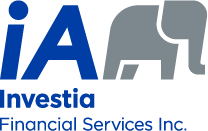THE 360 NEWSLETTER
Guidance on LAFs for Client-Name Accounts, Changes to Address and Banking Information, Redemptions and Issuing Third Party Cheques
Compliance March 26, 2020During these unprecedented times, meeting your clients face-to-face may not be possible to obtain signatures for various account activities. As such, changes to your business practices are required to manage the increased need to deal with clients remotely. To this end, regulators have temporarily added some flexibility with respect to certain functions. It is recommended that you first try to use existing processes and platforms as much as possible to service clients remotely (e.g. call centres, digital signature processes and online platforms). However, in instances where this is not possible, the following may be relied on:
- Acting on Client Instructions for Client-Name Accounts: If your client does not have a signed Limited Authorization Form (LAF) on file that would allow you to act on client instructions without obtaining a client signature, for mutual funds registered in client-name accounts, you will be permitted, given the current circumstances and for the time being, to act as if a LAF were on file for all client-name accounts, regardless if one has been approved or not. This means that you should follow the same policies and procedures that are in place for FALs or nominee trades. Please be reminded that you must take adequate steps to authenticate the client’s instructions before acting on them. As such, you should not rely on email instructions alone without additional steps such as telephone confirmation with the client to verify the authenticity of the instructions. You must also maintain detailed notes and records of all client instructions. For details regarding the requirements into proper note taking, please refer to the following communication from November 8, 2018:
- Changes to Address and Banking Information, Redemptions and Issuing Third Party Cheques: The increase in remote servicing poses higher risk of cyber incidents, including phishing attempts. As a result, temporary fraud protection measures must be in place and include:
- continuing to require signatures or using the client portal to process applicable changes to client address or banking information;
- limiting redemptions to existing bank accounts on file; and
- prohibiting the issuance of third-party cheques.
